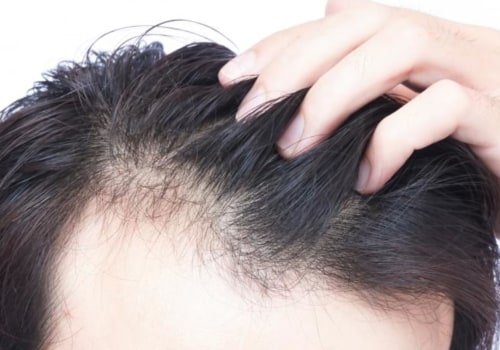OS and AGB can cause protein malnutrition in patients who have maladaptive eating behaviors after surgery, those who avoid protein food sources, and those who have prolonged vomiting. Potentially fatal protein caloric malnutrition can occur after gastric bypass. Healthcare providers should ensure that patients undergo thorough, scheduled monitoring for nutritional deficiencies, which must be treated aggressively early in their course to prevent life-threatening complications. Not consuming enough protein can lead to protein malnutrition.
Symptoms of inadequate protein (and calorie) intake include excessive hair loss, dry skin, fatigue, and always feeling cold when others are not cold. Some of these symptoms are common after gastric bypass. You can minimize them by focusing on protein intake. These symptoms should go away 4 to 6 months after the operation.
The sheath was originally designed to be the initial surgery for high-risk patients and people with a BMI greater than 50. Bariatric patients who do not follow recommended diets have a higher risk of developing relevant malnutrition. Research suggests that there is a high risk of preoperative anaemia among severely obese patients and bariatric surgery patients of childbearing age due to heavy menstrual periods. Bariatric surgeries are defined as procedures that alter the gastrointestinal tract to reduce caloric intake or absorption and can be classified according to the mechanism of action to promote weight loss as restrictive or malabsorptive.
Despite improved perioperative safety, long-term complications are a major problem for patients undergoing bariatric surgery. Malabsorption BPD with or without duodenal change includes this category of bariatric surgery. Additional research is needed to establish prevention and treatment recommendations to optimize nutritional outcomes after bariatric surgery. However, recovering more than this may be a sign that the patient has not changed their lifestyle habits or that they are not managing stress or other environmental challenges well.
Common Postoperative Micronutrient Deficiencies Bariatric procedures that involve techniques to reduce gastric capacity or redirect the intestines to the gastric pouch may result in micronutrient deficiencies. A zinc deficiency can also aggravate hair loss, which is common during the first six months after bariatric surgery. However, findings related to vitamin D status after bariatric surgery, as measured by blood 25-hydroxyvitamin D concentrations, have been contradictory, with decreases after BPD with duodenal change (6) and RYGB (10), but an increase (10) or no change (72, 8) reported in other studies. Iron deficiency can occur without symptoms; however, symptomatic iron deficiency, which includes anemia and a feeling of fatigue, cold, and desire to eat ice, is commonly reported after bariatric surgery (61, 114, 116, 11).
Signs and symptoms related to zinc deficiency, including hair loss, poor wound healing, and changes in taste acuity, have been reported in patients after bariatric surgery (145, 14), but these symptoms may not be specific to zinc malnutrition and may result from deficiencies in other micronutrients, proteins or fatty acids. Patients may complain that they are experiencing “mental confusion,” possibly related to chronic inadequate carbohydrate intake, so RDs should encourage adequate consumption of fresh fruits, vegetables and whole grains in the long term for bariatric surgery patients. General guidelines are available to help reduce the risk of ketosis and other side effects related to suboptimal carbohydrate intake, such as metabolic bone disease or exacerbation of bone disease after bariatric surgery. .





